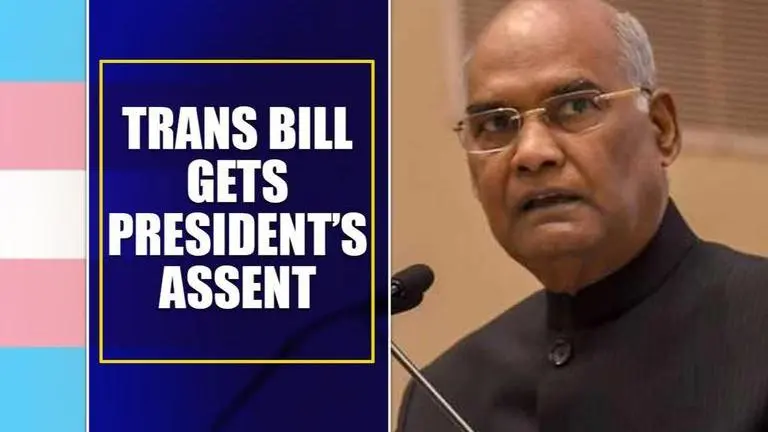Updated 7 December 2019 at 22:26 IST
Transgender Bill becomes law with President's assent, despite opposition from community
Transgender Persons (Protection of Rights) Bill became law on December 5, subsequent to President Ram Nath Kovind's assent, despite outrage from the community.
- India News
- 3 min read

Despite outrage from the community and its allies, the Transgender Persons (Protection of Rights) Bill became law on December 5, subsequent to President Ram Nath Kovind's assent. The Transgender Persons (Protection of Rights) Bill, 2019 was passed by the Parliament on November 26.
Ever since the Bill was tabled in the Parliament, the transgender community has been opposing it over multiple reasons. The representatives of the LGBTQIA+ community, in a press conference, stated that the bill undermines their rights. The bill, they said, requires individuals who change their gender to give a 'proof of surgery' which was against the Supreme Court order in the 2014 National Legal Services Authority versus Union of India case and also mandates a third person to declare the gender of an individual, they said. The bill would put back transgender rights by 50 years, they said.
The Rajya Sabha last week passed the Bill after a motion to refer it to a select committee of the Upper House was defeated. The government got 74 votes, which defeated the opposition motion of 55 votes. The Lok Sabha had already passed the Bill on August 5. On the day of Bill's passage in the Parliament, the queer community in Mumbai was allegedly denied permission to protest against it by the Mumbai Police citing unstable political conditions in Maharashtra.
Transgender Persons Bill
The Transgender Persons (Protection of Rights) Bill, 2019, seeks to provide a mechanism for social, economic and educational empowerment of transgenders and was moved for consideration and passage in the Rajya Sabha by Social Justice and Empowerment Minister Thawar Chand Gehlot on November 20.
Advertisement
It is now required for an individual to acquire a "transgender certificate" from the District Magistrate. However, the Act now makes it a prerequisite to undergo a medical examination to be certified as a 'transgender' for the District Magistrate, when applied for a "change in gender certificate", thus, upholding the rights of self-identification. In 2014, the Supreme Court ruled that transgender people should be recognised as the third gender and that it is their "right to decide their self-identified gender."
The Act also lacks the provision of reservation for the transgender community in education or employment sectors. Furthermore, as per the Act, sexual offenders against a trans individual would face imprisonment only up to two years, in contrast to the 10-year punishment for sexual assault on cisgender women.
Advertisement
(With PTI inputs)
Published By : Aishwaria Sonavane
Published On: 7 December 2019 at 22:15 IST
